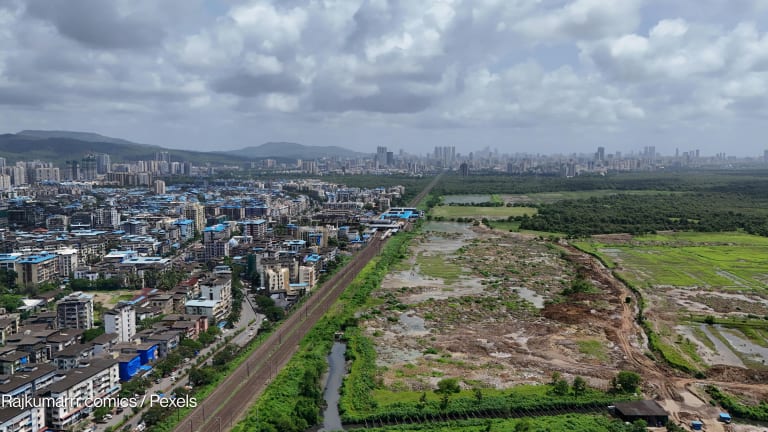Opinion: Lifesaving solutions to climate change we need to talk about

This week, thousands will gather in San Francisco for the Global Climate Action Summit, less than 200 miles away from the site of the state’s worst wildfire in history. It’s clear: We have no more time to waste when it comes to climate solutions. And while there are many solutions already making a difference for people and planet, they need to be dramatically and rapidly ramped up.
Physicians in medical societies representing more than half of the nation’s doctors call climate change a threat to Americans’ health. This summer, California and Oregon residents fled from record wildfires, the East Coast sweltered under heat waves, and Lyme disease reached all 50 states as a consequence of warming temperatures.
Worldwide, air pollution is a silent killer responsible for one in nine deaths, contributing to lung cancer, heart disease, and stroke. Moreover, the World Bank has warned that climate change could drive an estimated 100 million people into poverty by 2030.
While the negative links between climate and health make headlines, we less often hear about the benefits of action. For too long, we’ve viewed climate solutions as only for the climate; but climate action is essential to solving our biggest collective challenges across a range of issues.
The landmark Sustainable Development Goals adopted by 193 countries through the U.N., explicitly recognize that we cannot end poverty and achieve good health, thriving economies, and equality without taking action on climate. And the shared progress we’ve already made on these issues could be lost if we don’t tackle the climate challenge with resolve.
Thankfully, solutions already exist that improve lives, economies, and the environment; now it’s time we give them the attention and support they deserve.
Local innovations in sustainability are helping cities and addressing climate change. For example, the city of Los Angeles — notorious for some of the worst air pollution in the United States — is taking ambitious action to achieve a 100 percent zero-emissions bus fleet by 2030. And this year, L.A. became the first city to introduce a new electric vehicle car-sharing program to provide disadvantaged communities with more convenient, affordable, and sustainable transportation.
Efforts to tackle health problems and climate change are taking off in other parts of the world, too. Clean cooking solutions, such as more efficient stoves, can reduce exposure to harmful smoke as well as black carbon emissions, which cause global warming.
In Bangkok, climate campaigners warn against the private sector 'silver bullet'
Insurance is often floated as the solution to the havoc climate change is wreaking in developing nations. A new report suggests it's another way for developed countries to buy their way out of climate change.
Clean energy can transform lives in important ways we don’t often talk about. Many picture solar energy as a luxury for sunny, middle-class neighborhoods, but solar solutions are now cost-effective in communities around the world, and for the nearly 1 billion people who still lack electricity, access to sustainable energy can be the difference between life and death.
For example, by powering health clinics with solar electricity, mothers can safely deliver babies instead of giving birth in the dark. Doctors and nurses can use modern medical equipment and critical supplies, such as vaccines, are preserved, keeping families healthy. This is happening right now in Uganda.
Equally powerful — access to contraception — an essential part of women’s reproductive health and rights, can be a game-changing solution for our planet. According to a recent analysis, giving women and girls the opportunity to plan their families and their futures through access to modern contraception and education are two of the top 10 solutions to climate change.
These health-related climate solutions only scratch the surface of climate solutions currently available. Solutions exist in every sector. We need to raise the profile of cross-cutting climate action and encourage bold innovation across every sector and at every level.
The Global Climate Action Summit this week will be a moment to have conversations that reach beyond political echo chambers and to mobilize governments, businesses, the health community, social justice leaders, creative professionals, young people, and many more, to take on the climate challenge together.
Now is the time to recognize that our challenges are interconnected — as are our solutions. And the sooner we act, the sooner we reap the benefits.
Update, Sept. 11, 2018: This article has been updated to clarify that the Global Climate Action Summit is occurring Sept. 12-15.
Search for articles
Most Read
- 1
- 2
- 3
- 4
- 5








